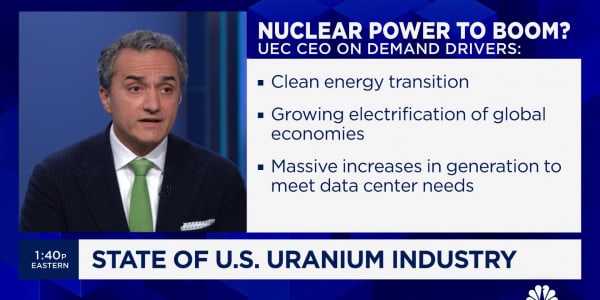The battle over getting companies to bring back the trillions they have stashed overseas will get more heated in the coming months, though the end result may not mean a whole lot.
Corporations have more than $2 trillion in profits earned in foreign markets that not have not been brought back onshore because they would face a second round of taxation. (Goldman Sachs recently put the number at $2.5 trillion.)
While President Barack Obama has a plan on the table to deal with asset repatriation and the issue is a high priority for congressional Republicans, the probability for action is minimal, according to an analysis by Dubravko Lakos-Bujas and other strategists at JPMorgan Chase.
"We think the odds of a repatriation holiday being enacted are quite low," Lakos-Bujas said in a report for clients. "Even if one were to become law, theory and recent empirical evidence suggest it would have a minimal effect on the economic outlook."
The theory behind repatriation is that companies will bring that money home and put it to work through hiring and capital expenditures. Recent history, though, hasn't held up those hopes.
Read MoreSame as it ever was: Congress stillbroken
The last time the U.S. tried to bring home corporate cash was in 2004, with what essentially was a tax holiday. However, several studies (JPMorgan cites one from the Journal of Finance) have found that much of the benefits were felt in dividend issuance to shareholders and stock buybacks. So while it helped prop up equity prices, it didn't do much for other aspects of the economy.
And it's not as if companies are starving. Nonfinancials are sitting on just shy of $1.8 trillion in cash domestically, a number that has dropped off just slightly over the past year but is up 7.2 percent over the past five years, according to the Federal Reserve.
"If a large multinational has profitable investment projects then it can easily access corporate bond or other financing markets," Lakos-Bujas wrote. "As such, theory suggests that repatriation is unlikely to have a meaningful effect on domestic economic activity."
Obama floated a proposal in his budget address that essentially would tax overseas cash at 19 percent less the rate it already was taxed by the host country. The plan also would cut the top-line nominal tax rate from 35 percent to 28 percent and implement a one-time 14 percent "transition tax" on previous untaxed earnings.
No deal is likely unless it's part of broader tax reform, though.
Read MoreNew poll on wealth, taxes doesn't tell whole story
JPMorgan outlines three likely outcomes: The president's deal is accepted as presented, an outright tax holiday in the vein of the 2004, or the status quo, which the analysis deems most likely. (The report also points out that current tax holiday proposals call for none of the benefits to be used toward dividends or buybacks, same as in 2004 when the restriction was summarily ignored by the beneficiaries.)
"More significant progress on this topic would be likely to spawn more investor uncertainty without a material benefit to the economy or corporate profits," Lakos-Bujas wrote. "In the status quo, we believe U.S. corporates continue to grow earnings at a high-single-digit growth rate with increasing corporate actions including higher buyback and M&A activity with or without repatriated cash."






